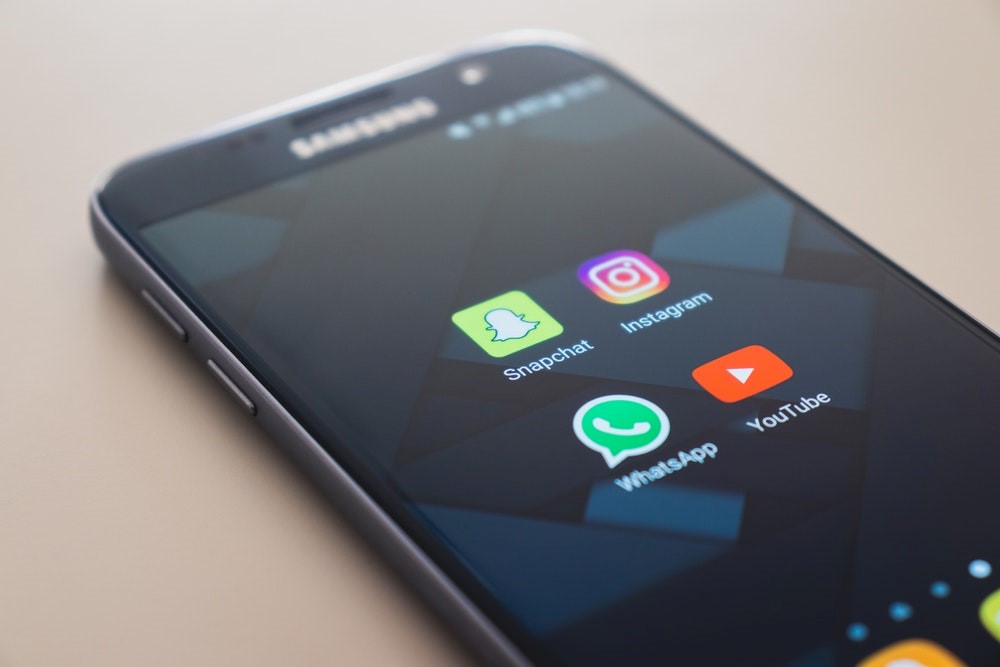Behavioral Health: Is Social Media a Force for the Good or Not?

This October is all about creating an awareness of mental health issues. The question is if our mental health is affected by the ever-expanding influence of the modern world, in particular, social media? On a global scale, the mobile phone, and other mobile devices we use to access social media- are the technology ‘we don’t leave home without’ and when we do panic strikes-
Imagine the following all too familiar scenario:
You get up, eat breakfast and are out of the house before the clock chimes 7.30.
You walk to the bus stop.
Something is nagging at you.
You are missing something but don’t know what. You do a double check. Bag-tick, bus pass-tick.
Yes, they are all there.
Your bus arrives unusually promptly.
You check again.
A sharp alarm goes off in your head.
You let off steam like a boiling kettle or speeding locomotive coming to a halt!
You yell an internal painful piercing silent scream.
“My cellphone!!”
Then like all of us- you realize life goes on without social media.
The need to update your status, create a tweet or post an Instagram photo vanishes like steam evaporating into the air. You can breathe once again.
Freedom!

Surely these are all good things?
Here is the question that stands out like a New York billboard in Time Square ‘Is social media a force for good or not?’
The Effects of Social Media on Mental Health for Today’s Generation?
It is not surprising to learn that the use of social media is growing, especially among US teens. In a recent Pew Research Survey, they report that 95% of teens have access to mobiles, while 45% are online constantly. These figures may cause some to reel away in fright. However, the survey shows a split consensus with 31% saying that social media has had mostly a positive impact. 45% of teens say that social media is neither a good or bad influence. 24% of teens say that social media is a force that is not positive.
The ‘For’ social media section made comments like “I feel that social media can make people my age feel less lonely or alone. It creates a space where you can interact with people.” (Girl, age 15). 27% of teens in the negative camp report that social media can lead to bullying or hurtful rumors spreading. This research reflects social media’s ‘Ying and Yang’ aspect. It is neither black nor white, but grey.
Social Media: Positive Effects of Social Media on Mental Health
Social media does not stand alone as being the cause of why mental illness has spiked. A person’s biological wiring, environment, trauma, and numerous other reasons can all lead to a behavioral health illness. For most people Twitter or Facebook acts as an outlet to express their thoughts or feelings about the world. Current research by Eva Buechel supports this. Buechel and her research team found people who feel pensive during one to one conversations found an outlet in using social media. Buechel performed two separate studies. The results of both suggested short messaging helped socially awkward people express themselves with greater freedom.

Social media has shown to be effective in breaking down social stigmas relating to mental health and learning disabilities. In New York Times bestseller “Let’s Pretend this Never Happened”, Jenny Lawson has used blogging to speak about her struggles with OCD, depression and anxiety disorder.
The Negative Effects of Social Media on Mental Health
One of the issues that parties on both sides would agree on is finding a way to limit social media use. Overuse of social media has been shown to be connected to sleep deprivation and depression. Sarah Fader, CEO and founder of Stigma Fighters, says that obsessive social media use can harm people physically and mentally. Fader says overuse is proven to result in back pain and eye or neck strain. Research demonstrates that compulsive use of social media can result in behavioral health issues such as depression, paranoia or loneliness. It is not due to sharing things with a social network, but much more to do with users comparing themselves to others.
Trends show social media use is growing. Surely there is a way to limit social media use.
Can Anything Stop the Social Media Rocket Ship from Taking Over?

Ema Chui writing for J. Walter Thomson Intelligence argues that social media companies need to take responsibility for heavy social media use. Google was the first to introduce an education initiative aimed at helping customers balance their use. YouTube followed, introducing their Take a Break feature allowing users to set custom reminders to take a recess. Instagram followed suit with their time management feature.
The Take-Away
Social media is neither a good or bad thing; it depends on how often it is used. There is both empirical evidence for and against. Social media can be a positive tool for the socially awkward and alleviate isolation for both young and old. However, when it is obsessively used, this heightens the risk of mental illness. In 2018, the likes of YouTube and Instagram have taken steps to prevent overuse. Measures like these will help curb social media abuse and ensure its use is more balanced by society.
For information on curbing social media use please see the following links:
Googles Digital Well-being initiative
https://www.thefader.com/2018/08/01/instagram-facebook-time-limit
By: Jonathan Gordon
